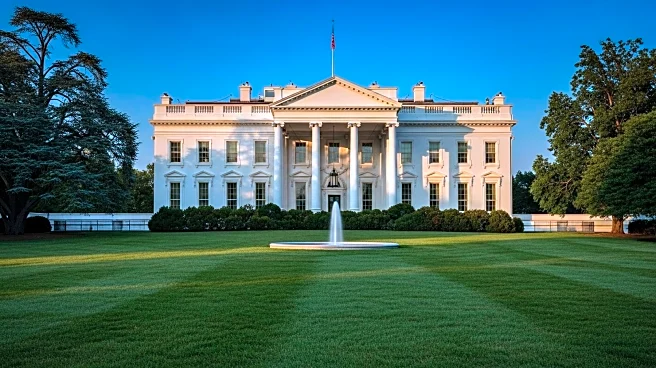What's Happening?
The White House has announced the termination of Susan Monarez, the Director of the Centers for Disease Control and Prevention (CDC), following a policy disagreement with Health and Human Services Secretary Robert F. Kennedy Jr. Monarez, who was confirmed by the Senate less than a month ago, has refused to step down, citing legal deficiencies in the termination notice. Her ouster has led to the resignation of three other top CDC officials in protest of Kennedy's leadership, particularly his stance on vaccines. Monarez's attorneys argue that only President Trump can legally fire her, and they have rejected the White House's notification as insufficient. The situation has escalated amid changes to the CDC's vaccine policy, which Monarez opposed.
Why It's Important?
This development is significant as it highlights ongoing tensions within the CDC and the broader public health community regarding vaccine policies. The resignation of key CDC officials underscores concerns about the politicization of public health decisions, which could impact the agency's ability to effectively manage health crises. The dispute also reflects broader debates over vaccine safety and public health strategy, potentially affecting public trust in health institutions. The situation may influence future policy decisions and the direction of the CDC under new leadership.
What's Next?
The legal battle over Monarez's termination may continue, with potential implications for the CDC's leadership and policy direction. The resignations of top officials could lead to further instability within the agency, affecting its operations and public health initiatives. Stakeholders, including political leaders and health experts, may weigh in on the situation, influencing public discourse and policy decisions. The White House and HHS may need to address concerns about the politicization of health policies to restore confidence in the CDC.









